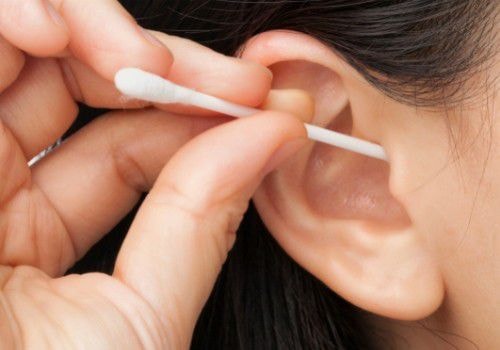5 common mistakes that damage hearing
Your ears can be damaged when exposed to loud sounds, when using cotton swabs or when swimming... How to care for and protect your ears to keep them healthy?
Turn up the volume too loud
According to a survey by the American Speech-Language-Hearing Association, 28% of high school students say they have to turn up the volume to hear television programs. Another study found that 17% of high school students regularly experience tinnitus, or ringing in the ears.
Listening to music from an MP3 player at high volume for long periods of time will wear out the sensory hair cells in your ears, causing temporary hearing loss.
Dr. Richard M. Rosenfeld, an ear, nose, and throat specialist at Long Island University Hospital (Brooklyn), recommends the following:
- Take breaks if you have to listen to music through headphones. You should only listen to music for no more than 60 minutes a day and at no more than 60% volume.
- Use noise-canceling headphones. This way, you won't have to turn up the volume to drown out outside noise.
- Do not stand or sit next to speakers at parties or concerts.
Use cotton swabs
According to Webmd, earwax can be uncomfortable and unsightly, but it actually protects your ears. Let it push out on its own and then use a soft cloth soaked in a little water to clean your ears.
Using cotton swabs can introduce germs and push some earwax deeper into your ears. If your ears are affected by earwax, see your doctor and they can safely remove the earwax.
 |
| Earwax protects the inside of the ear, so using cotton swabs is unnecessary and harmful to your ears. Photo: Womenshealthmag. |
Do not use earplugs when swimming
Swimming pools are places where a lot of dirt and bacteria hide, so your ears will inevitably be invaded by them when swimming, and you may even get an ear infection or otitis.
Symptoms of an ear infection include ear congestion, hearing loss, and itching. Later, the ear canal becomes swollen, painful, and the ear drains pus. If the ear is painful to the touch, it is time to see a doctor.
However, Dr. Rosenfeld advises against using earplugs while swimming because it can cause trauma to the ear canal.
Apply sunscreen, forget your ears
People often forget to apply sunscreen to their ears, says Elizabeth Tanzi, director of the Washington Institute of Laser Dermatology. “Ears are very sensitive to the sun, so don’t forget them,” Tanzi says.
She said the ear is one of the most vulnerable places on the human body to skin cancer. The initial symptoms of this disease are often red ears, cracked and easily bleeding if scratched. Consult a doctor if you have signs of these symptoms.
Ear piercing
The earlobe is the softest part of the ear, with the best blood supply and resistance to infection. If you accidentally pierce the cartilage, it will lead to severe anemia and infection.
In particular, after piercing your ears, you need to take good care of the piercing site. Remember to wash your hands before cleaning the area. Then, soak a cotton pad in alcohol and gently rub around the area several times a day.
If your earlobe starts to burn or itch a few hours or days after getting it pierced, you may have an infection. If antibiotic cream doesn't help, you'll need to let the piercing heal on its own.
If you are allergic to nickel, you should wear gold or stainless steel earrings.
According to Alobacsi.vn






